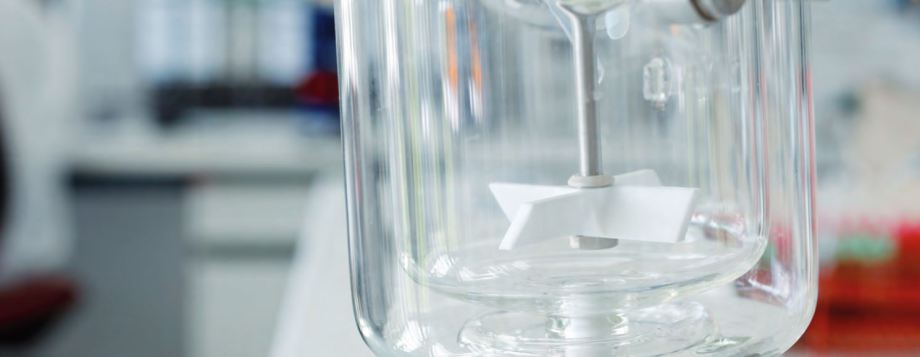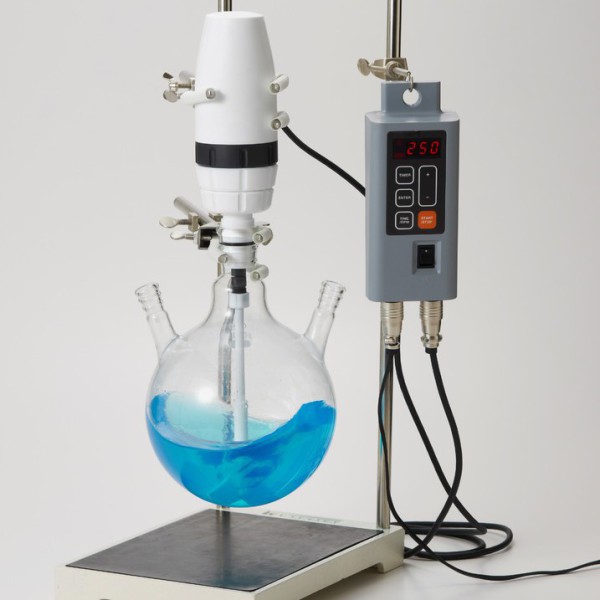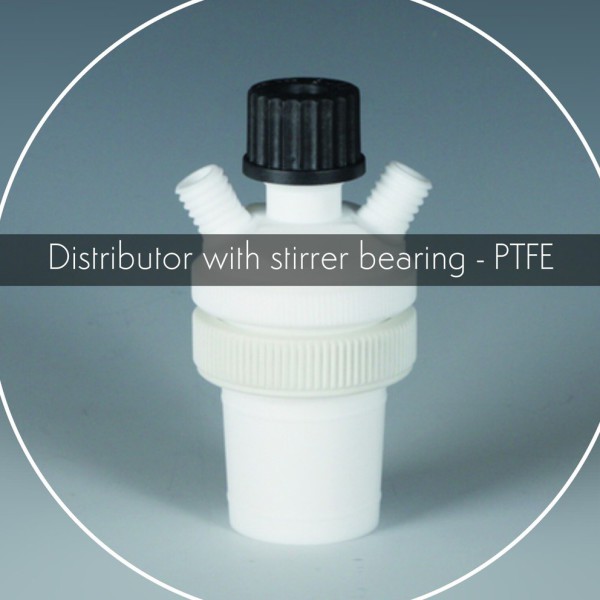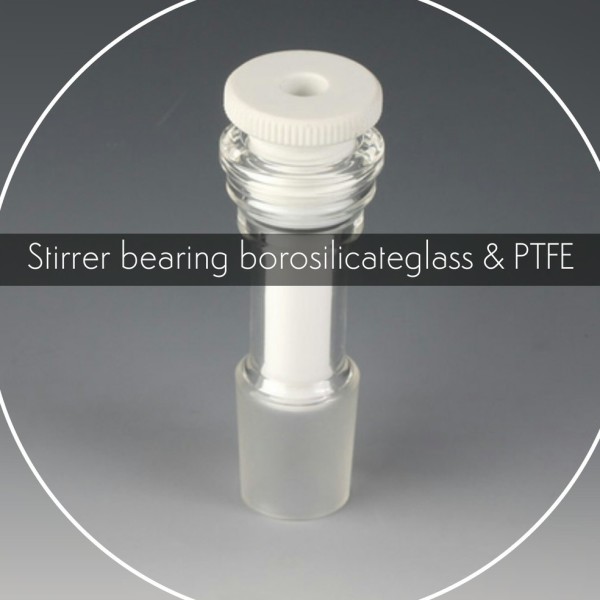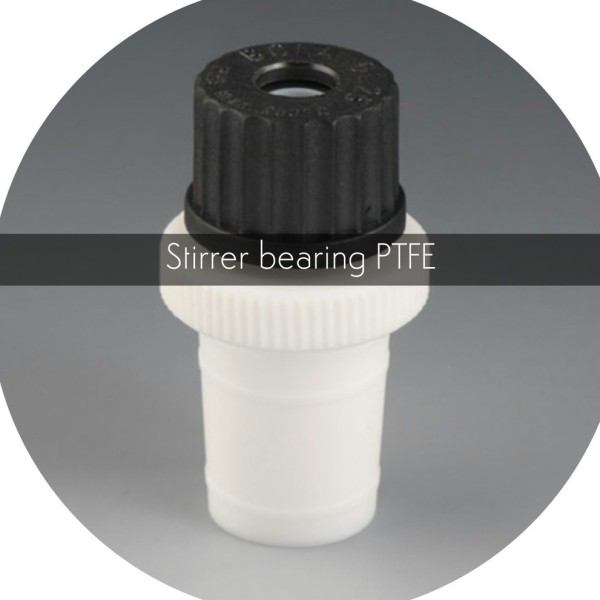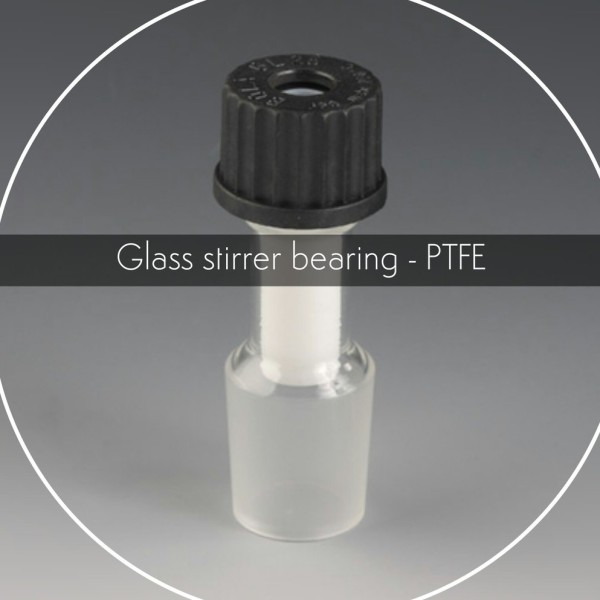PTFE-covered Propeller stirrer shafts, U-shaped stirrer shafts and stirrer shafts with blades (PTFE is known as Teflon® by DuPont). The stainless steel core provides high
mechanical stability and allows a safe fixing in the agitator. The stirrer shafts for professional stirring and mixing in laboratorys are available in all well-established standard sizes and even as
made to measure on request.
Unique properties of the PTFE-covered (Teflon®) Stirrer shafts:
- FDA conform
- Free of extractable materials
- Unbreakable
- Nearly universal chemical resistance
- Temperature resistant
- Non-adhesive
- Exchangeable
- Safely fixable
- Solid
- Individual custom manufacture
Typical range of applications for stirrer shafts made of fluoroplastics:
- For stirring and mixing of aggressive media such as acids, bases, gases and solvents
- For the exchange of glass stirrer shafts with solid products or high power transmission from the agitator to the medium
- At temperatures up to +250 °C
- Ideal for very adhesive substances such as dyes and glues
- Suitable for clockwise and counter clockwise rotation
High performance PTFE components
Technical informations & What you should know about Stirrer Shafts
BOLA
Stirrer Shafts consist of a PTFE-jacketed stainless steel shaft and a stirrer blade made of solid PTFE. The stainless steel core provides
high mechanical stability and allows a safe fixing in the agitator.
Unbreakable
All glass stirrer shafts which are commonly used in laboratories are very fragile. Dropping, stirring solid materials or too much power transmitted from the agitator
to the product can cause broken glass. Due to their solid stainless steel core, BOLA Stirrer Shafts are protected against all these possibilities of breaking.
Universal chemical resistance
Due to the thick PTFE-jacket, the product which is stirred is only exposed to PTFE. This assures an almost universal chemical resistance.
PTFE-jacketed stirrer shafts can be used whenever stirrer shafts made of PP (polypropylene), glass or stainless steel are not sufficient.
Temperatur resistance
Stirrer shafts made of PP (polypropylene) are deformed at temperatures exceeding +100°C and cannot be used any longer. All BOLA PTFE
jacketed stirrer shafts can be used at temperatures of up to +250°C without any negative effects on their chemical resistance.
Non-adhesive
The surfaces of glass and stainless steel stirrer shafts allow adhesion of products (in particular such as dyes and glues). BOLA PTFE Stirrer Shafts,
however, are non-adhesive and therefore eliminate adhesion of dyes and glues.
Interchangeability
At present, most stirrer shafts used in laboratories are made of glass. All BOLA Stirrer Shafts are available with the same diameters, lengths and surface qualities
(KPG) as stirrer shafts made of glass. Thus, the user can easily replace the glass stirrer shaft with a PTFE-jacketed stirrer shaft and does not have to change agitators, couplings and
guiding devices.
Safe fixing
The upper end of the BOLA Stirrer Shaft is not jacketed with PTFE and can therefore be fixed safely into the agitator or the stirrer coupling.
Solide stirrer blade
The stirrer blade is fixed tightly to the stirrer shaft and cannot be loosened by the product which is still turning after switching off the agitator. The stirrer
shafts are suitable for clockwise and counterclockwise rotation.

